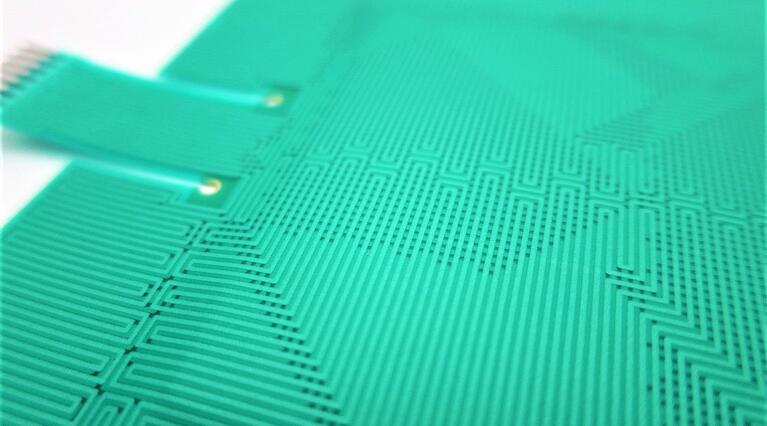Requesting a quotation can be daunting for our potential and current customers. Done correctly, a thorough RFQ can dramatically reduce friction and shorten lead-time. In this series of articles our objective is to simplify the RFQ process by providing clear instructions on what is expected from the manufacturer’s standpoint.
Our first article focuses on Security Foils.
Materials
Depending on the applications, the nature of the material is subject to change. Our most common material is polyester (PET) but we also offer other types of plastic films such as Thermoplastic Polyurethane (TPU) or Polyimide (PI).
Material thickness and special properties (i.e. flammability, UV protection, high temperature or certain chemical resistance) affect performance and cost, so it’s crucial to select the best solution.
Mechanical Dimensions
Our production takes place in sheet form which means that our engineers have to do the panelization first. The panelization consists of laying out multiple single parts on a standard sheet size. For example, if your product is sized 8in X 4in (200mm x 100mm) we can probably fit 6 parts on a 16 X 20in panel (400 x 500mm). One single part is therefore charged for ⅙ of the cost of processing one sheet.
External dimensions don’t have to be very precise, +/- 0.1in (2.5mm) are good enough.
However, tolerances are important, as they will dictate the type of tools and equipment to be used.
Surfaces (to be mounted on)
Usually the security foil is intended to be mounted on a casing or a cover using an adhesive. It is important for you to specify the type of material to be bonded on and when possible, the recommended adhesive.
Circuitry
The circuit pattern is a dense sensor mesh whose function is to detect any effort to drill through the foil. The customer will have to decide and specify the following:
- the circuit density (line and space dimensions)
- if the construction should be single sided or double sided
- and if through hole vias are necessary to connect the top to the bottom layer.
Connection
Another element that we do not control is how the security foil is connected. One of the most common and recommended solutions is a ZIF (zero insertion force) connector. If you chose a ZIF connector we would need to know the tail pitch.
Electrical Resistance
By controlling the electrical resistance of the coil the sensor will be able to detect any attempt at tampering with the device to be protected. The range of electrical resistance is typically dictated by the electronics and the customer will have to specify it to help us design the conductor.
Selective Adhesion Strength
Our foil uses different adhesive systems, so circuits tend to be broken when removal is attempted. Customers can be very particular about the adhesion strength and we prefer the customer to specify their requirements.
360° Protection
Finally, the circuit is generally folded and wrapped around the part of the device to be protected in such a way that future attacks are prevented from all directions. In order for our engineers to come up with the best construction we need to know the bend radius required by the customer.
In Summary
| Materials | Mechanical Dimensions | Bonded Surface | Circuit | Connect | Elect. Res | Conductor
Adhesion |
360° protection |
| nature | product size | material | line and space | connector | elec. res. | adhesion strength | bend radius |
| thickness | tolerances | adhesive | SS – DS | tail pitch | |||
| special properties | Vias |
In this article we laid down what we would need to know in order to best estimate the price of your security foil. That being said, we understand that some of our customers are still uncertain about these requirements and we also offer what we call “our industry recommendations” to help the customer make his decisions.
Central Midori has been producing Security Foils for more than 20 years for applications such as POS terminals, ATM or PIN pads. Our customers are industry leaders in the US and Europe. Please feel free to contact us by email, centralmidori@central-midori.com.sg or through our website: https://centralmidori.com/contact/

